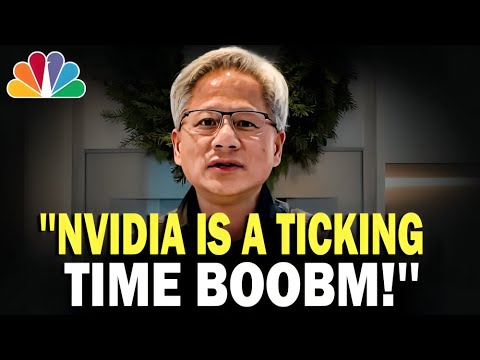The NVIDIA CEO highlights the company’s crucial role in leading the AI industry, emphasizing the economic and strategic importance of expanding global access to American AI technology while warning against restrictive export policies. He envisions AI transforming industries like healthcare and manufacturing into interconnected, automated systems, unlocking trillions of dollars in value, and encourages talented individuals to join NVIDIA’s innovative workforce.
In the video, NVIDIA CEO discusses the company’s strategic position in the rapidly growing artificial intelligence (AI) industry, emphasizing the significant financial opportunities involved, potentially reaching trillions of dollars. He highlights the company’s substantial investments and the importance of maintaining leadership in AI technology, which is often considered a national treasure. The CEO addresses concerns about export restrictions on NVIDIA chips, arguing that limiting access would not effectively hinder adversaries’ military capabilities, as they can secure resources independently. Instead, he advocates for expanding global access to American AI standards to ensure the U.S. remains at the forefront of AI development.
The CEO explains that the primary motivation for exporting NVIDIA’s technology is to establish American standards worldwide, which would benefit the U.S. economy and technological leadership. He warns that restricting sales, especially to large markets like China, would result in missing out on enormous business opportunities—such as the $50 billion Chinese market—comparable to the size of entire companies like Boeing. By remaining open, NVIDIA can foster the growth of AI built on American technology, creating jobs, generating tax revenue, and advancing innovation.
Customer interaction and feedback are crucial for NVIDIA’s development process. The company works closely with AI researchers and developers globally, learning how their architecture and technology are used and how they can improve. This feedback informs the design of new AI models tailored for specific applications, such as virtual proteins and cells, which could revolutionize fields like bioscience. The CEO shares a past experience with IBM, illustrating the importance of aligning technology development with real-world needs, especially in medical research, which he believes holds vast potential.
Looking ahead, the CEO envisions AI expanding beyond consumer internet applications into industries like healthcare, manufacturing, and industrial automation. He describes a future where factories operate as large, interconnected robotic systems, with AI enabling “physical AI” to orchestrate complex manufacturing processes. This industrial transformation could unlock trillions of dollars in value, making AI integral to the next wave of technological and economic growth. He emphasizes that these advancements will require sophisticated AI tailored for physical and industrial applications.
Finally, the CEO offers advice for those interested in working at NVIDIA, emphasizing the importance of domain expertise and a passion for hard work. He notes that the company employs a diverse range of specialists, including digital biologists, quantum chemists, roboticists, and computer graphics engineers, across many industries. He encourages applicants to have relevant skills and a strong work ethic, especially those willing to endure challenges, as NVIDIA seeks talented individuals who are passionate about pushing the boundaries of AI and technology.
